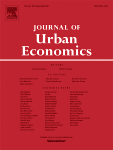- A
- A
- A
- ABC
- ABC
- ABC
- ąÉ
- ąÉ
- ąÉ
- ąÉ
- ąÉ
- HSE Campus in St. Petersburg
- St Petersburg School of Economics and Management
- Department of Economics
- News
- The paper written by the professor of the Department of Economics is accepted for publication in the Journal of Urban Economics
Saint Petersburg, Kantemirovskaya 3 A.
Orlando G., Sportelli M.
Ekaterinburg: Springer, 2022.
The Journal of the New Economic Association. 2025. No. 3 (68). P. 43-51.
Sorokin K., Andrey Z., Levin A. et al.
In bk.: Data Analytics and Management in Data Intensive Domains: 25th International Conference, DAMDID/RCDL 2023, Moscow, Russia, October 24ŌĆō27, 2023, Revised Selected Papers. Vol. 2086: Communications in Computer and Information Science. Springer, 2024. P. 77-87.
ECONOMICS. WP HSE 1/EC/2025. ąØąśąŻ ąÆą©ąŁ, 2025

The paper written by the professor of the Department of Economics is accepted for publication in the Journal of Urban Economics
We heartily congratulate Alexander Scorobogatov and wish him further fruitful work! ┬Ā Abstract:
┬Ā Abstract:
This paper documents the negative relationship between the age of cities and their average wages in Russia and a number of post-Soviet countries. To determine a mechanism behind this relationship, a spatial equilibrium model was developed. The empirical strategy is reduced to using the model to guide the interpretation of regression estimates. According to the results, higher real wages in newer cities reflect both their disadvantages as places for living and their production advantages. The latter are related to their production and construction amenities, higher shares of skilled workers, and more available natural resources. At the same time, these advantages and disadvantages tend to disappear over time, which gives rise to income convergence.
┬Ā
